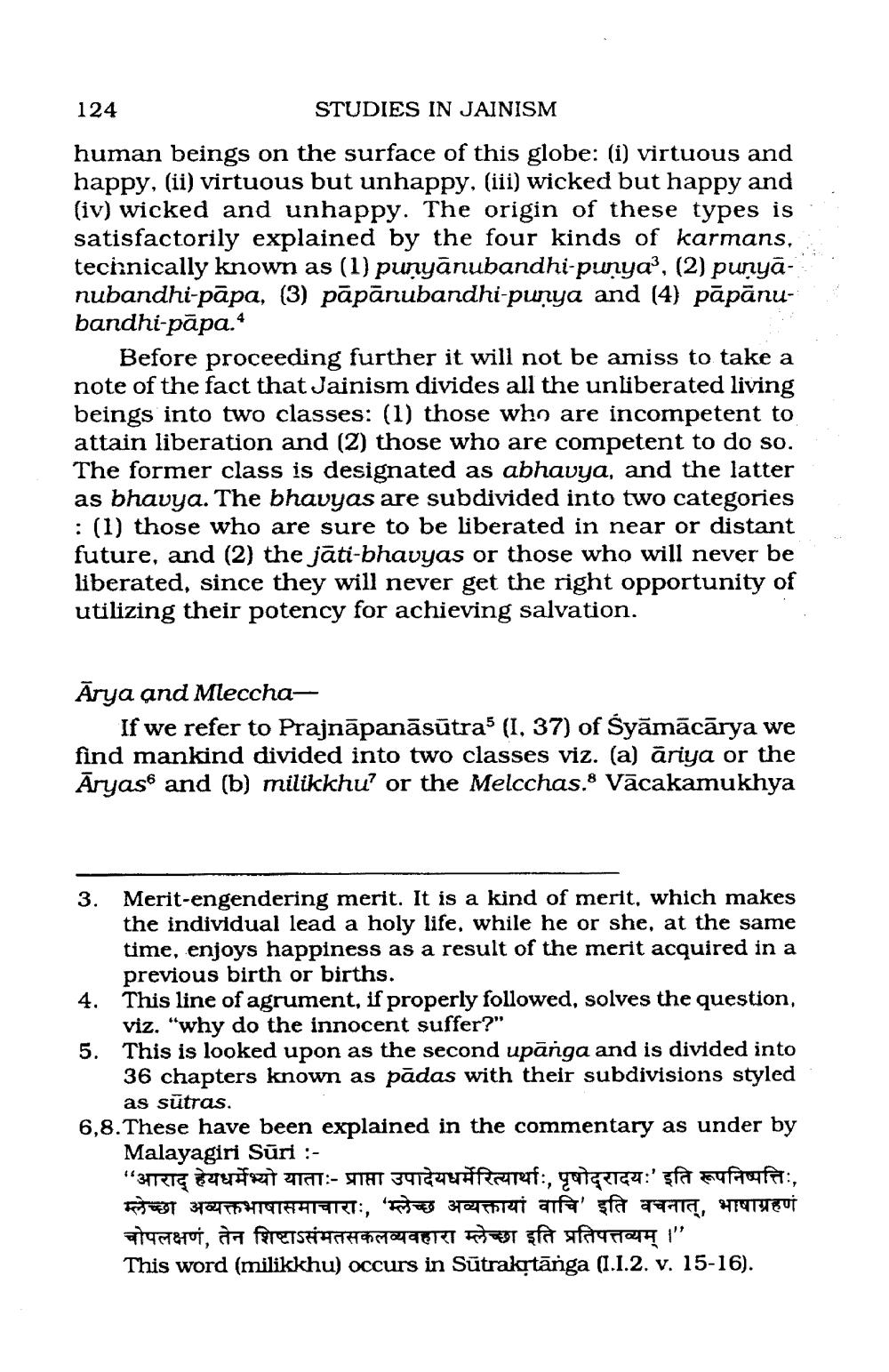________________
124
STUDIES IN JAINISM human beings on the surface of this globe: (i) virtuous and happy, (ii) virtuous but unhappy, (iii) wicked but happy and (iv) wicked and unhappy. The origin of these types is satisfactorily explained by the four kinds of karmans, technically known as (1) punyānubandhi-punya', (2) punya nubandhi-pāpa, (3) pāpānubandhi-punya and (4) pāpānubandhi-pāpa.
Before proceeding further it will not be amiss to take a note of the fact that Jainism divides all the unliberated living beings into two classes: (1) those who are incompetent to attain liberation and (2) those who are competent to do so. The former class is designated as abhavya, and the latter as bhavya. The bhavyas are subdivided into two categories : (1) those who are sure to be liberated in near or distant future, and (2) the jāti-bhavyas or those who will never be liberated, since they will never get the right opportunity of utilizing their potency for achieving salvation.
Ārya and Mleccha
If we refer to Prajnāpanāsūtras (I. 37) of Syāmācārya we find mankind divided into two classes viz. (a) āriya or the Āryas and (b) milikkhu' or the Melcchas.8 Vācakamukhya
3. Merit-engendering merit. It is a kind of merit, which makes
the individual lead a holy life, while he or she, at the same time, enjoys happiness as a result of the merit acquired in a
previous birth or births. 4. This line of agrument, if properly followed, solves the question,
viz. "why do the innocent suffer?" This is looked upon as the second upanga and is divided into 36 chapters known as pādas with their subdivisions styled
as sūtras. 6,8. These have been explained in the commentary as under by
Malayagiri Sūri :"आराद् हेयधर्मेभ्यो याताः- प्राप्ता उपादेयधर्मेरित्यार्थाः, पृषोदादयः' इति रूपनिष्पत्तिः, म्लेच्छा अव्यक्तभाषासमाचाराः, ‘म्लेच्छ अव्यक्तायां वाचि' इति वचनात्, भाषाग्रहणं चोपलक्षणं, तेन शिष्टाऽसंमतसकलव्यवहारा म्लेच्छा इति प्रतिपत्तव्यम् ।" This word (milikkhu) occurs in Sūtrakrtānga (I.1.2. v. 15-16).




